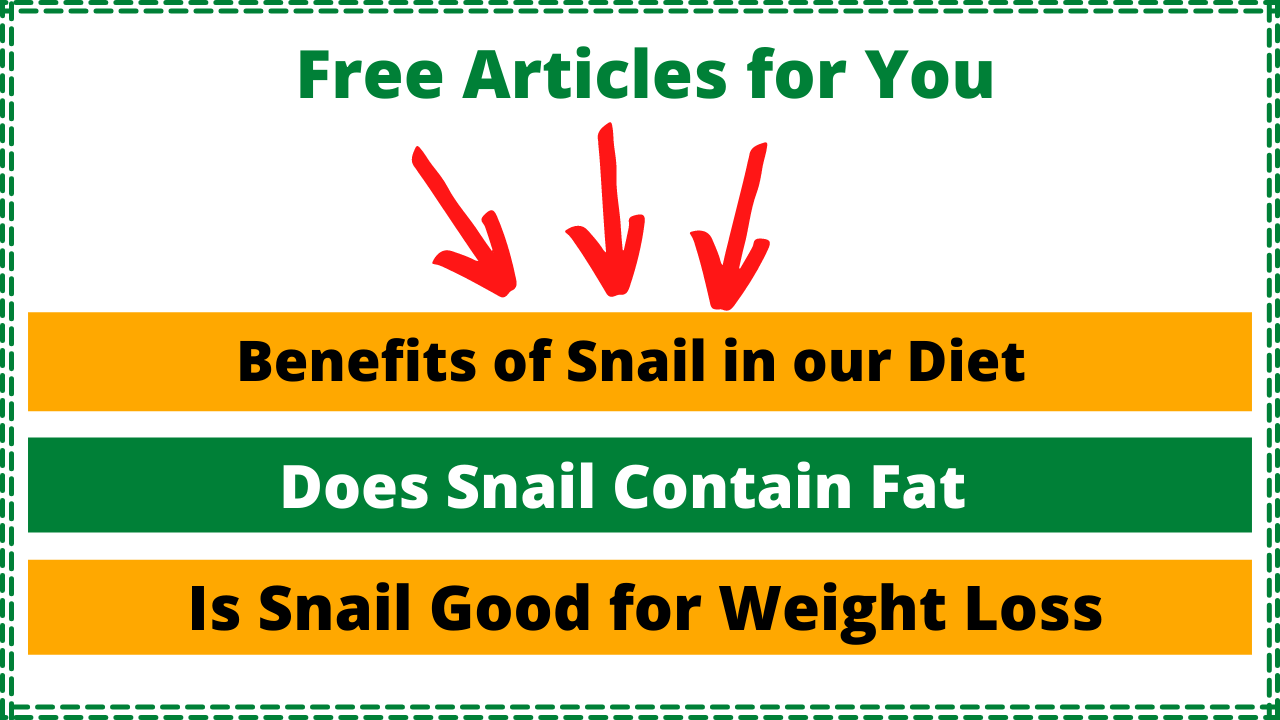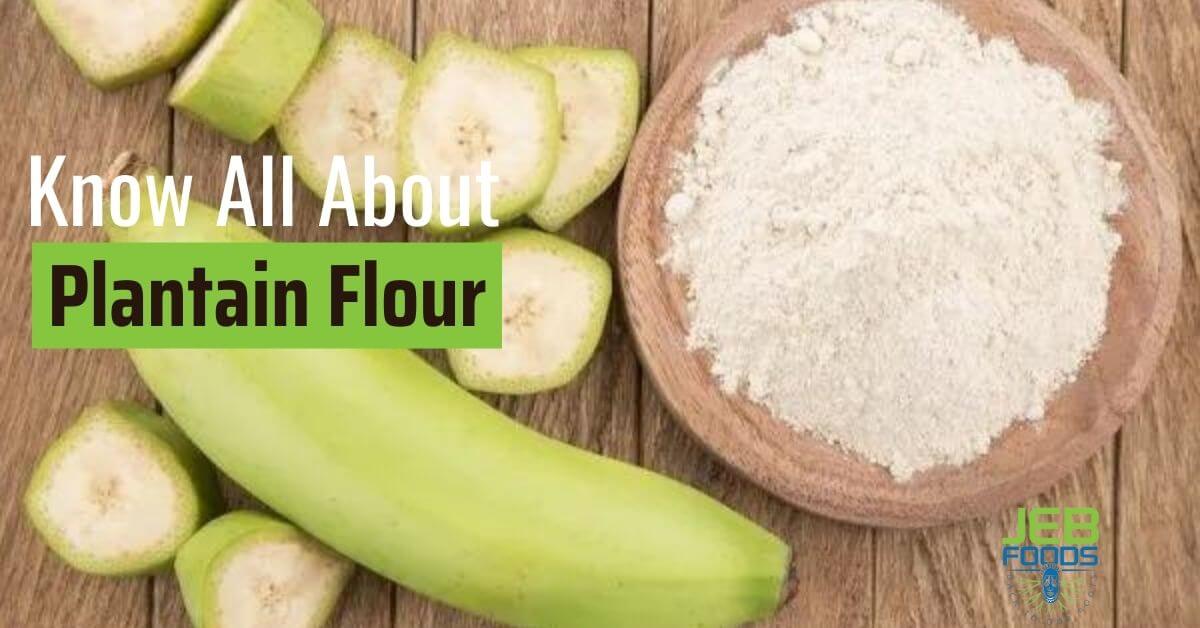Snails have shelled gastropods, and they have a lot of nutritional benefits. Snail is a general term used for land or water snails.
There are over 10,000 species of snails in the world. And they exist in different sizes and shapes.
The biggest snail is the African giant snail, Achatina (Lissachatina) fulica. It can grow to 18 centimeters in length and 9 centimeters in diameter.
They are high in protein and low in fat, and they are also high in iron, calcium, Vitamin A, and a variety of other minerals.
Vitamin A enhances your vision and helps your immune system resist sickness. It also promotes the growth of cells in your body.
Find out the health benefits of Edible snails
Let us dive deeper into how snail is nutritional and the benefits we can gather from it. But I will have to start with how snail is made available in the first place
Availability of Snail in the Market
Table of Contents
ToggleLive snails are not allowed for exports into some countries like the USA. They are classified as pests in these countries.
The Department of Agriculture has declared the Giant African Land Snail to be invasive in the United States. Other varieties of snails could need USDA authorization.
USDA/APHIS form PPQ 526 is necessary, and shipping must be accompanied by label PPQ 599. But a dried-freeze snail is eligible for importation into the united states.
Here is a sample of what a dried-freeze snail looks like
However, snail export is still a thriving international business. The major snail exporting nations are Morocco, Lithuania, Ukraine, the United Kingdom, Ireland, France, Greece, Serbia, Italy and Bulgaria.
And the major importing countries are Spain, France, Portugal, Lithuania, the United States, Greece, Czech, Hong Kong, Germany and Macedonia.
I bet these countries are enjoying the Nutritional benefits that the Snail brings.
Nutritional Contents in Snail (100 Grams)
Let us see what the nutritional benefits that snails have. Below are the nutrients present in snails.
Get your edible dried-freeze Giant African snail here
| Total Fat | 1.4g |
| Saturated Fat | 0.4g |
| Monounsaturated Fat | 0.3g |
| Polyunsaturated Fat | 0.3g |
| Total Omega-3 fatty acids | 218mg |
| Total Omega-6 fatty | 17.0mg |
| Protein | 16.1g or 32% DV |
| Vitamin A 100 IU Vitamin E (Alpha Tocopherol) | 5.0 mg or 25% |
| Vitamin K | 0.1 mcg |
| Riboflavin | 0.1 mg or 7% DV |
| Niacin | 1.4 mg or 7% DV |
| Vitamin B6 | 0.1 mg 6% DV |
| Folate | 6.0 mcg or 1% DV |
| Vitamin B12 | 0.5 mcg or 8% DV |
| Choline | 65.0 mg |
| Calcium | 10.0 mg |
| Iron | 3.5 mg or 19% |
| Magnesium | 250 mg or 62% |
| Phosphorus | 272 mg or 27% |
| Potassium | 382 mg or 11% |
| Sodium | 70.0 mg or 3% |
| Zinc | 1.0 mg or 7% |
| Copper | 0.4 mg or 20% |
| Selenium | 27.4 mcg or 39% |
| Cholesterol | 50.0 mg or 17% |
| Water | 79.2g |
Classification Of Snail
Snail belongs to the molluscs’ family. They have no bones. The most significant part of a snail is its shell which houses and protects it from predators.
Its shell is made of calcium carbonate, and the shell is the hardest part of the snail. They do not have eyes; however, they have two pairs of tentacles.
The giant tentacles are their eyes, while the smaller pair is their olfactory organs – their sense of smell.
Snails tentacles are located in their head. Their sense of touch is also very high. It is one of their defence mechanism.
Habitat Of Snails
Snails thrive in cold or humid weather conditions. This is why the night is their busiest time of the day.
They can also thrive and reproduce considerably wherever they can find shade from direct sunlight.
If the weather is harsh, such as during winter or severe droughts, many species, particularly the land snails, retreat into their shells and cover themselves with a dried mucus called epiphragm.
They then attach themselves to something in a shady place and are said to be hibernating. During this period of hibernation, they neither eat nor move. They remain on the same spot until they sense the arrival of a favorable weather condition.
Reproduction In Snails
Snails are hermaphrodites. Each snail has both male and female reproductive organs. However, they still need to mate with one another to fertilize the eggs.
The eggs are laid in the soil and hatch into baby snails after about four weeks. The culture or farming of snails is called heliciculture, and it can be a lucrative agribusiness that requires patience and extreme care for the snails.
The size of the egg a snail lays is in direct proportion to its size. This means a large snail lay a large egg, and a small-sized snail lay a small egg.

Nutritional Benefits Of Snails
The snail contains essential vitamins and minerals needed by the body.
They have essential fatty acids, calcium, selenium, iron, magnesium and are a rich source of vitamins E, A, K and B12. Snails are 80% water, 15% protein, 2.4% fat, and very low in calories.
The protein content of snails is high. It’s also a key iron source, calcium, Vitamins A, B, E, K and several minerals.
Here are the main benefits of each nutritional value of snail.
Iron
Iron is a significant component of the red blood cell and the muscles. It is an essential part of the red blood cell. The heart pumps blood, and iron in the snail is essential for building the red blood cell.
To transfer oxygen to the heart, the red blood cell combines with oxygen from the lungs. The heart subsequently distributes the oxygenated blood throughout the body.
As a result, the circulatory system of the body transports blood, oxygen, and nutrients from meals to different sections of the body.
The production of red blood cells and the transmission of energy throughout the body both require iron. But Iron deficiency can result in significant tiredness and anemia.
Iron deficiency in children and pregnant or nursing mothers is boosted with good snail meat added to their meals and is a vital substance needed by the body to ensure the availability of the required number of red blood cells.
Additionally, it is necessary for the health of the nails., skin and hair. Snails also contain the vitamins that are needed in combination with iron to form the red blood cell. Snails are therefore a perfect source of red blood cells.
It also helps in the proper functioning of the brain as oxygen is carried to the brain. It is a good remedy for Anemia. Proper functioning of the brain helps in learning, thinking, and memory.
Anaemia can cause shortness of breath, headache, fatigue, weakness, chest pain, pale skin and dizziness.
Protein
Proteins are usually referred to as the building blocks of the body. Protein is vital in the building and repair of cells, tissues and organs in the body.
Our body is a series of connected cells, organs and tissues housed in bones and covered by skin. Snail is a good source of low-calorie protein.
The protein content of snails is high, and it has an additional advantage of low fat. The body is always in a continual cycle of building and destroying cells. So the cells are in the constant cycle of building and tiring down.
Old cells are brought down, and new cells are built. The high protein content of snails makes them a good source of animal protein.
Essential amino acids arginine and lysine are present in snails. The growth and repair of our body cells, tissues and organs depend majorly on these essential amino acids.
Lack of protein can cause weight loss, stunted growth and malfunctioning of the body system. Enzymes in the body are essentially proteins.
These enzymes are essential for the smooth running of the body. Functions such as blood clotting, muscle contraction, digestion and energy production are enzymes dependent.
Proteins also help in the balancing of body fluid, body PH and aid immunity.
Low Calorie And Low Fat
The low calorie in snails makes it a good food source for people who desire low-calorie food. Low-calorie foods are essential for weight control.
Consuming less calories than the body requires results in fat being burnt, leading to weight loss. This invariably leads to weight control.
It will also boost one’s mood. Low-calorie food also helps in staying healthy, corrects and improves sugar levels in the blood.
However, care must be taken because frying can introduce the fat back into the prepared snail. It is a fact that the method used in food preparations affects the nutrient content of the meal.
Vitamins
VitaminA, B1, B3, B6 and 12, and E is present in snails. Vitamin B helps in the proper functioning of the nervous system.
It helps in releasing the energy needed to build the red blood cell. It works with the iron in the snail to transport oxygen and nutrients.
And also helps in keeping the nervous system healthy. Vitamin A is good for the eyes and the immune system; Vitamin E acts as an antioxidant, cell regeneration and skincare.
Magnesium
Snails are a good source of magnesium. And magnesium helps in maintaining the normal pressure of the blood.
Magnesium is required in enzymatic functions to regulate various reactions in the body. These functions include blood pressure regulation, muscle and nerve functions, blood sugar control, energy production.
It helps make the bone strong, and it helps keep the heart rhythm steady. And can help prevent Osteoporosis
Selenium
Snails are usually on the soil, and selenium is a mineral in the soil. Man needs only a tiny portion of selenium.
However, selenium plays a vital role in metabolism. Selenium has antioxidant properties, and it is present in the prostate gland, testicles, pancreas, liver, spleen and kidney. All these organs are vital in the body.
Omega -3 Fatty Acids
omega-3 fatty acids are polyunsaturated fat that is not produced by the body. It contributes to the brain’s normal functioning.
This helps in the development of the memory and brain of children. Omega-3 is excellent to improve memory and preventing heart disease.
Choline
Choline is an essential part of the cell membrane. It is needed for several operations in the body.
Snail contains choline, and choline helps in the development of the brain in fetuses and infants.
It is also suitable for the breakdown of fat, for the proper functioning of the brain and nervous system of the body.
Calcium And Phosphorus
Strong bone is a direct result of calcium. However, other nutrients are needed to have a strong bone.
However, calcium is an excellent component of bone. Phosphorus is essential in teeth and bone formation. It helps in the absorption of calcium.
Even magnesium is vital in bone and tooth health. So snails are suitable for strong bones and teeth. A snail can help prevent Osteoporosis.
Copper
Copper supports the proper functioning of a lot of the organs in the body. It is necessary for the development of red blood cells because it aids the body in the absorption of iron, which is essential for the formation of red blood cells.
It also helps prevent damage of cells, support the immune system, and make for a healthy nerve.
Find out If snails are good or bad for consumption
Is snail consumption beneficial to the body
Yes. Consuming snail has a lot of nutritional benefit. Snail is not only a culinary delicacy. It is a good choice as a healthy meal.
Snail meat contains iron, magnesium, protein, fat (mainly polyunsaturated fatty acid), calcium, phosphorus, folate, copper, zinc, vitamins A, B6, B12 and K.
The high protein content with low fat makes snail meat an excellent and healthy food.
The amino acids arginine and lysine present in snails are at higher levels than in a whole egg. Snail has healthy essential fatty acids such as linoleic and linolenic acids.
Iron for necessary for blood, calcium for bone. Vitamin A helps the eyes and strengthen one’s immune system to ward off diseases.
Proteins in snails also play a significant role in the growth of cells in one’s body. Magnesium is present in snails and helps the red blood cell circulate oxygen in the body.
Phosphorus is essential for our bones. The bone is the frame for one’s body and, therefore, must be strong and healthy enough to carry the body.
Snails can supply calcium for the body because the calcium requirement for snails’ proper functioning and growth is high.
So calcium is readily available in snails. Snails utilize the calcium in their food to build their shells. In almost all parts of the world, snails are a culinary delicacy and very beneficial to the body.
Final Thought
While certain sea snails are among the most dangerous on the planet, terrestrial snails are typically safe to consume, especially with the nutritional benefits of snail showing a lot that can be gained from consuming edible snails.
The benefits of consuming snails outweigh any fear or perspective some people have about snails, which makes them see them as pests or pets. It is not if utilized correctly.
Most importantly, cook them to avoid infection – some snails have a harmful parasite known as rat lungworm.
Eating uncooked snails can, in rare situations, result in rat lungworm illness. However, as long as you heat them to at least 165°F for many minutes, you’ll be OK.
Here is an edible dried-freeze Giant African Land snail sold on Amazon




